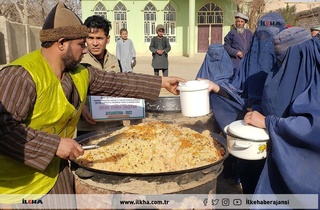According to these United Nations organizations, Afghanistan is among the eight nations where inhabitants are grappling with severe food insecurity.
In their joint statement, the WFP and FAO highlighted the likelihood of acute food shortages worsening due to an anticipated decline in humanitarian funding. The repercussions are predicted to further destabilize the already fragile macroeconomic condition in the region.
The statement emphasized that Afghanistan, alongside the Democratic Republic of the Congo, Ethiopia, Haiti, Pakistan, Somalia, the Syrian Arab Republic, and Yemen, are areas of high concern. It's expected that life-threatening conditions will exacerbate in the foreseeable future in these regions.
Economic experts have suggested that creating employment opportunities within the country could potentially alleviate the challenges associated with food insecurity. Mohammad Shabir Bashiri, a political analyst, pointed out the lack of critical infrastructure in Afghanistan, hindering progress in various welfare, social, and economic domains for the Afghan people.
Meanwhile, Deputy Minister of Economy Abdul Latif Nazari urged international institutions and aid agencies to persist in their support. As winter approaches, the concern for the well-being of Afghan citizens intensifies, with a call for attention and assistance from the international community.
Concurrently, the United Nations Office for the Coordination of Humanitarian Affairs (OCHA) disclosed a pressing need for $93.6 million to aid the 114,000 individuals affected by aftershocks in Herat. However, OCHA reported that only a mere 26% of the required funds had been received to date.
Highlighting the urgency, OCHA emphasized the necessity for additional financial support to prevent vulnerable populations from facing harsh winter conditions in open or makeshift shelters.
The collective appeals and warnings from these humanitarian organizations underscore the pressing need for immediate international aid and assistance to alleviate the intensifying food crisis and provide crucial support to affected populations in Afghanistan. (ILKHA)



 Dünya
Dünya
 Güncel
Güncel
 Güncel
Güncel
 Güncel
Güncel
 Güncel
Güncel
 Dünya
Dünya
 Güncel
Güncel
 Röportaj
Röportaj
 Dünya
Dünya
 Dünya
Dünya





